Conference Program
Legal, liability and regulatory issues
The evolving approach to maritime autonomy in the United States: Recent U.S. congressional developments, use cases and investment, and the State of U.S. Coast Guard Policy
 Sean Pribyl
Sean PribylPartner
Holland & Knight LLP
USA
The U.S. autonomous vessel market continued to develop over the past year. Recent U.S. Congressional interest in emerging maritime technologies supports a view of cautious optimism in the coming year, which may work to allow for increased investment by the commercial market to follow precedent being set by the U.S. government, commercial outer space sector, and offshore energy industry. Investment in the U.S. market continues to take shape as U.S. policy and Congressional authorizations are offering a glimpse of pathways to overcoming limitations under U.S. law related to minimum vessel manning requirements and compliance with navigation laws such as the COLREGs. Testing by academic institutions is also supporting collaboration and safe development of use cases, and government agencies are undertaking directed research into the future of commercial maritime autonomy with reports expected this year. Moreover, labor shortages and emerging opportunities for new decarbonization technologies may present useful justifications, including with remotely controlled operations. The U.S. Coast Guard remains the primary gateway through which industry seeks permission to operate without crew (or reduced crew) and with advance autonomous functionality, and this session will examine the state of Coast Guard law and policy, and what industry can expect in the coming year.
The MASS assurance and regulatory compliance process
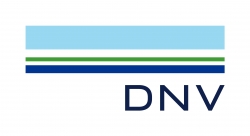 Jan van Tiggelen
Jan van TiggelenDiscipline leader digital transformation
DNV
Norway
The presentation will share DNV Advisory's practical experience from MASS projects with a focus on the assurance and regulatory compliance process. Main topics for the presentation: flag state requirements; IMO MSC 1/Circ 1455 requirements; class requirements (DNV CG-0264); the need for third-party verification of concept qualification (CQ) and technology qualification (TQ) of novel technology; the MASS risk assessment requirements; cybersecurity and safety management system requirements; lessons learned from MASS projects.
Preparation for port state control inspection of MASS
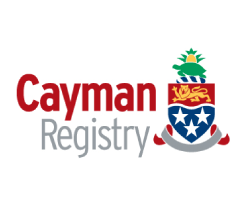 Chris Balls
Chris BallsPrincipal surveyor
Maritime Authority of the Cayman Islands
Cayman Islands
This paper will outline some of the discussions that have taken place at the Caribbean Memorandum of Understanding on Port State Control (CMoU) Technical Standards Working Group concerning port state inspection of autonomous vessels, in particular the sub-24m type. It will include details about the development of guidance for PSC officers, such as a draft aide-mémoire. The paper will also outline CMoU preparations for PSC activities for visiting autonomous vessels; depending upon the timing of the first such inspection in the Cayman Islands, it may include a description of this and the lessons learned.
AI and its impact on business
 Eugene Goryunov
Eugene GoryunovPartner
Haynes Boone LLP
USA
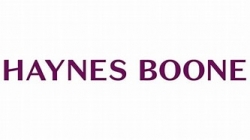 Vincent Shier
Vincent ShierPartner
Haynes Boone
USA
The presentation will discuss the ways that AI can improve and even change the transportation and shipping industries. There are many forms of AI and several have been used for years. For example, automated logistics, delivery routing and route navigation are all powered by AI, whether it be predictive analytics, different calculations or brute-force calculations. This session will explore these models and preview up-and-coming technologies that companies should consider in order to be competitive.
Panel Discussion
 Sean Pribyl
Sean PribylPartner
Holland & Knight LLP
USA
 Jan van Tiggelen
Jan van TiggelenDiscipline leader digital transformation
DNV
Norway
 Chris Balls
Chris BallsPrincipal surveyor
Maritime Authority of the Cayman Islands
Cayman Islands
 Eugene Goryunov
Eugene GoryunovPartner
Haynes Boone LLP
USA
 Vincent Shier
Vincent ShierPartner
Haynes Boone
USA
Data connectivity and cybersecurity
Ship-shore connectivity and remote diagnostics: new BV rule notes
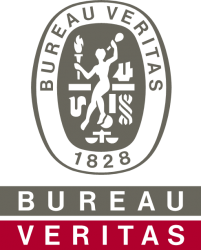 Ilia Maslov
Ilia MaslovTechnical advisor - digital and smart ships
Bureau Veritas Marine & Offshore
France
Connectivity systems on board and remote diagnostics from shore are among the enablers of autonomous and remotely operated shipping. BV M&O will share updates about the new rule notes and corresponding notations SYNC-COM and DATA-CENTRIC published in 2024. Challenges and regulatory solutions will be presented, including results from the S-123 development project with the International Hydrographic Organization (IHO) and from the data-centric evaluation project.
Error handling at the core: safe autonomy at TideWise
 Sylvain Joyeux
Sylvain JoyeuxCTO
TideWise
Brazil
Systems fail. Is combining mechatronics and software a recipe for disaster? TideWise's teams strive to avoid failures altogether but we recognize that they are unavoidable. In this talk, we will present the defense-in-depth approach we use in software to detect and handle failures, guaranteeing the safe operations of our USVs.
Advancing autonomous navigation: an AI framework to learn good seamanship
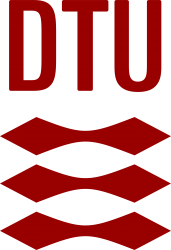 Roberto Galeazzi
Roberto GaleazziHead of center
Technical University of Denmark
Denmark
In the past decade, we have seen a burgeoning of COLREGs-compliant collision avoidance systems, born from a diverse array of algorithmic innovations. Yet their effectiveness is curtailed, limited to scenarios where specific COLREG rules can be distinctly applied. Contrarily, human navigators, in their quest for unerring safety, often transcend these rules, invoking the art of good seamanship in situations of imminent peril. We propose an AI framework adept at assimilating good seamanship, drawing from the rich, yet underutilized, knowledge reservoirs embedded in maritime academy simulators. This novel approach promises to usher in a new era of autonomous navigation.
COLREG’s compliant marine autonomy software – where are we for real today? And how does it work?
 Matthew Ratsey
Matthew RatseyManaging director
MarineAI
UK
The exact scope and focus of this presentation will be confirmed shortly.
Zero-shot learning for enhanced maritime navigation: a semantic reinforcement approach
 Robert Emmitt
Robert EmmittAutonomy and data science engineer II
PacMar Technologies
USA
This effort focuses on enhancing deep learning networks by adapting semantic relations and concepts in a knowledge graph to ground emerging categories from perception. The goal is to advance a maritime platform’s capabilities when encountering novelty and enable adaptive behavior in unstructured environments by providing it with a perception-knowledge-based toolset for improved navigational performance. The approach involves knowledge adaptation via reinforcement learning to improve the classification of previously unseen objects using both naval-specific initial knowledge and monocular vision. This is achieved by integrating conventional methods with commonsense knowledge bases. Results demonstrate improvements in traditional classification and novel object detection.
